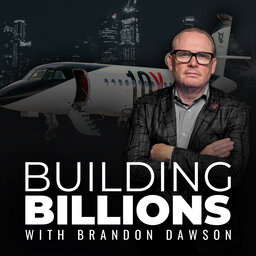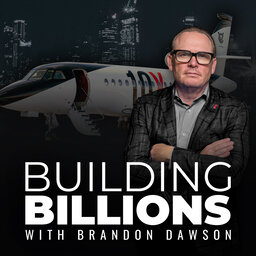EP 194 | The Power of Perseverance: An Interview with Kevin Turner
On this episode of Building Billions, I am giving you an exclusive interview with Kevin Turner I did during our 10X Growth Conference in Vegas.
As a leading authority in business strategy and financial transformation with a vast experience in managing complex financial operations for top corporations, Kevin shares his insights into the critical role of financial acumen in achieving business success. He discusses the importance of developing a strategic mindset that aligns financial goals with broader business objectives, and offers practical advice on managing risks, optimizing cash flow, and maximizing shareholder value. Drawing from his own experience as a COO, Kevin provides valuable insights on the evolving landscape of finance, the impact of technology on financial operations, and the key skills needed to succeed in this rapidly changing field.
Don't forget to leave a review! Some more remarkable interviews are coming down the pipeline.
In 1 playlist(s)
Building Billions with Brandon Dawson
Welcome to Building Billions with Brandon Dawson. This podcast will be taking you on the journey of …Social links
Follow podcast
Recent clips

Let Go to Level Up: How I Built Hundreds of Millions
12:41

S2 EP 12 The Hard Truths I Learned in 2025
07:02

S2 EP 10 | The Truth About Success: The 5 Things School Will Never Teach You
11:01
 Building Billions with Brandon Dawson
Building Billions with Brandon Dawson